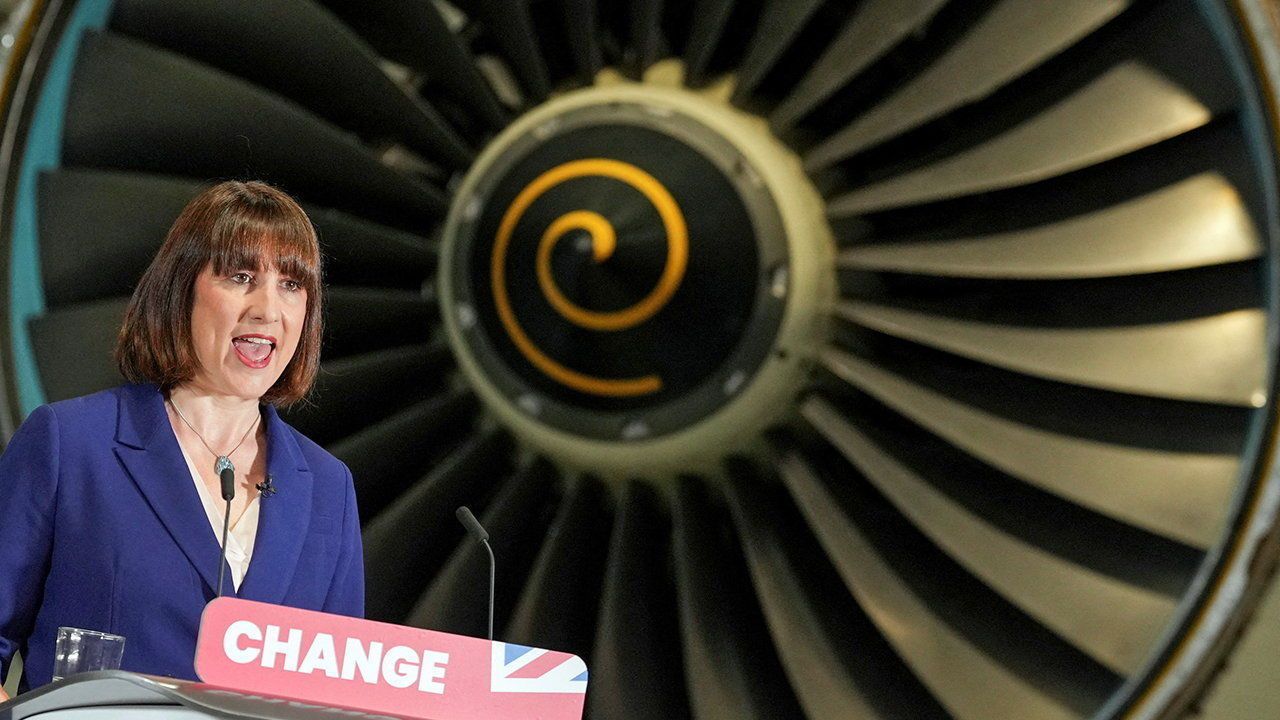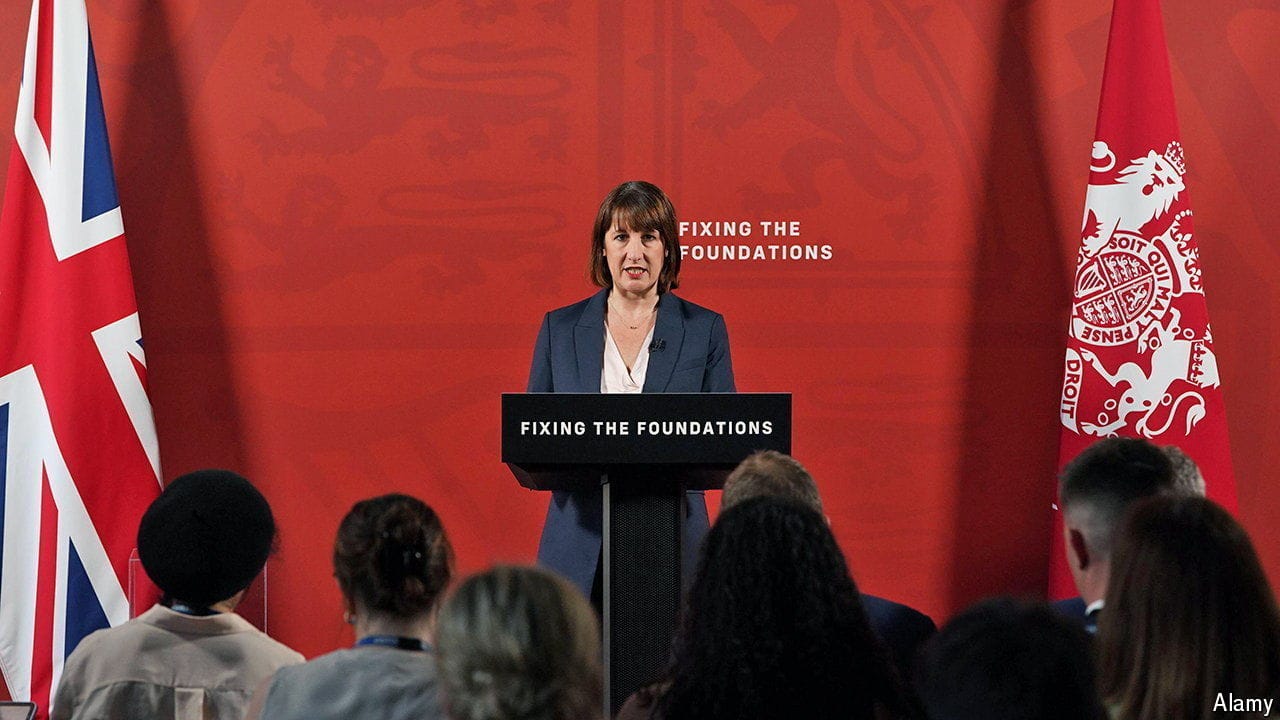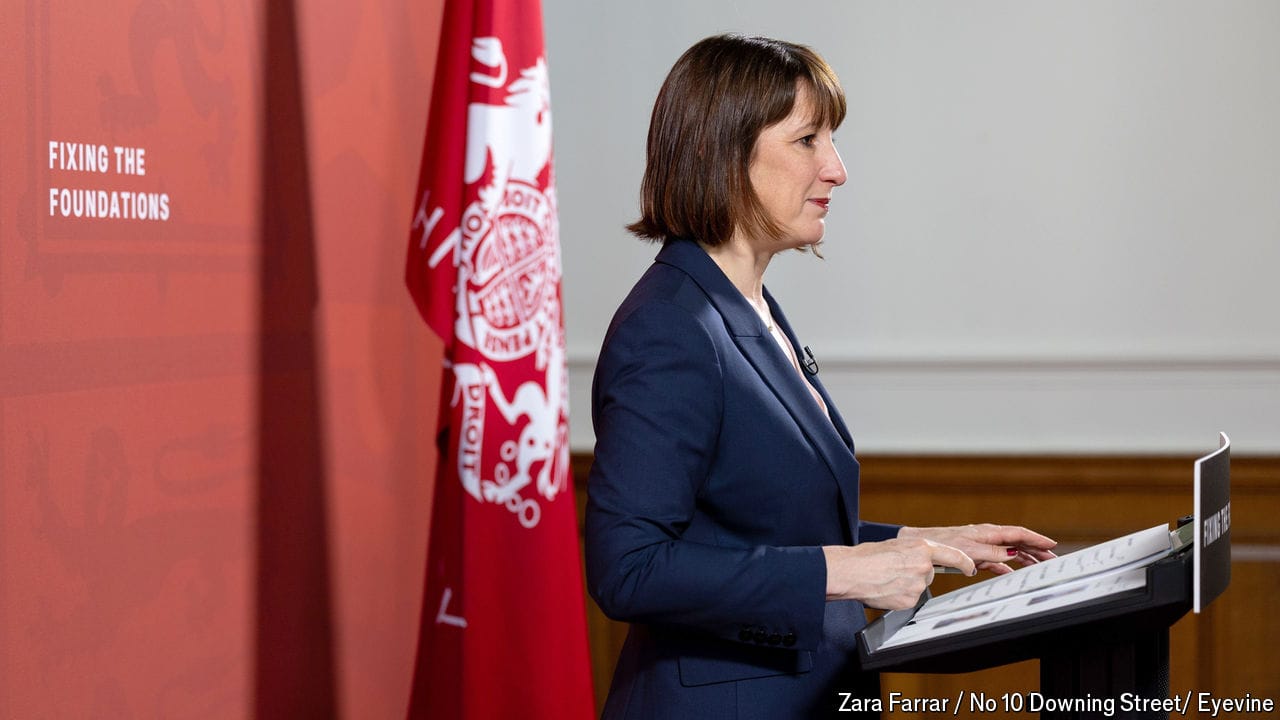What taxes might Labour raise?
Growth alone will not fix Britain’s public finances

To win big in general elections, the Labour Party needs to convince fretful voters that it can be trusted with the economy. Clement Attlee sold post-war nationalisations with the mien of a staid bank manager. Ahead of the party’s landslide win in 1997, New Labour pledged to copy years of restrictive Tory spending targets. Rachel Reeves, the shadow chancellor, has adopted a similar tactic ahead of Labour’s widely expected election win on July 4th.
Barring a few titbits of extra spending—worth around £10bn ($12.7bn, or 0.4% of GDP) annually and funded by taxes on private schools, home purchases by foreigners and the like—she wants to stick to plans set out by Jeremy Hunt, the chancellor, in March. She has also committed herself to the fiscal rule that government debt must be projected to fall as a share of GDP in the fifth year of five-year forecasts from the Office for Budget Responsibility (OBR), a watchdog.
Explore more
This article appeared in the Britain section of the print edition under the headline “Fiscal hole: needs filling”
Britain June 22nd 2024
- Britain’s Conservatives rule the Thames Estuary. Not for long
- What taxes might Labour raise?
- Child poverty will be a test of Labour’s fiscal prudence
- Climate change casts a shadow over Britain’s biggest food export
- Jeremy Corbyn wants more nice things, fewer nasty ones
- The silence of the bedpans
- Britain’s Conservatives are losing as they governed. Meekly
More from Britain

The race to become leader of Britain’s Conservatives
An exhausted party seems to think that it doesn’t have to change

How deep is Britain’s fiscal “black hole”?
Rachel Reeves sets out her first big decisions as chancellor
Shabana Mahmood, Britain’s new Lord Chancellor
The new justice secretary is both progressive and religious
How King Charles III counts his swans
A ritual that pleases conservationists and annoys the birds
Britain’s army chief fears war may come sooner than anyone thinks
Could the army cope without more money and troops?

